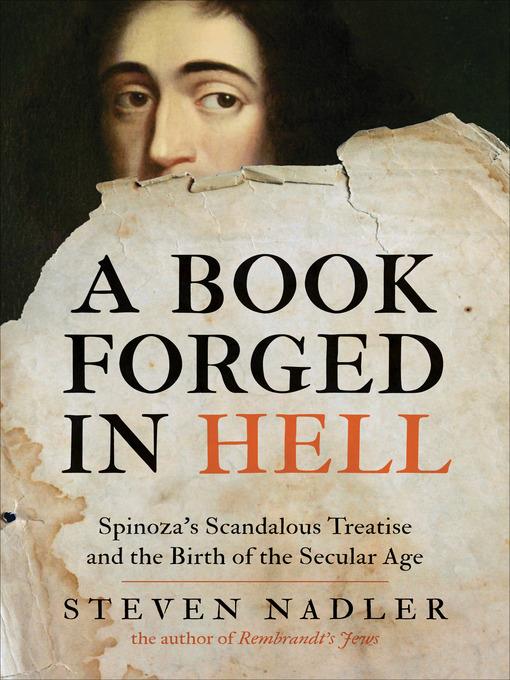
A Book Forged in Hell
Spinoza's Scandalous Treatise and the Birth of the Secular Age
کتاب های مرتبط
- اطلاعات
- نقد و بررسی
- دیدگاه کاربران
نقد و بررسی

Starred review from August 1, 2011
In this clearly written and accessible book, Nadler (philosophy, Univ. of Wisconsin-Madison, Spinoza: A Life) offers up a historical and philosophical analysis of Spinoza's Theological-Political Treatise (1670). While Spinoza's later Ethics is better known, Nadler explains that the Treatise is a much more "passionate, even angry" work that offers great insight into Spinoza's controversial theories regarding the impossibility of miracles, the Bible as a work of literature, and the importance of liberty and freedom of ideas in a society. Each chapter not only focuses on sections of the Treatise but also explains the historical context of the Treatise and why many saw it as such a dangerous and corrupting book. VERDICT In the preface, Nadler explains that he hopes to bring the Treatise to a new audience of general readers as well as academics. He has definitely succeeded in writing an extremely rewarding and engaging book. Highly recommended both for readers who have read Nadler's other books on Spinoza and for those who have never read the Treatise or are new to Spinoza.--Scott Duimstra, Capital Area Dist. Lib., Lansing, MI
Copyright 2011 Library Journal, LLC Used with permission.

October 1, 2011
In a work that Leibniz denounced as intolerably licentious, Nadler sees the indispensable charter for secular democracy premised on toleration and liberty. But clarifying that charter requires a probing look at its controversial author, Baruch de Spinoza, and his times. Though Spinoza's Ethics have received considerable attention from modern philosophers interested in its metaphysics and epistemology, the work so heatedly denounced by Leibniz has received little modern attention. Nadler here remedies that neglect, exploring the daring themes of Spinoza and explaining why those themes initially provoked a fierce backlash but eventually pushed all of Western Europe toward Enlightenment skepticism. In particular, readers may examine the reasoning Spinoza unfolds as he systematically scours Scripture of miracle and divinity, undermining ecclesiastical authority with his subversive new religion of natural ethics and humane freedom. As an intellectual heir of the freethinkers that Spinoza emboldened, Nadler admires the heterodox philosopher with a fervor that few conservative and religious readers will share. Still, this is a groundbreaking analysis of an incendiary text.(Reprinted with permission of Booklist, copyright 2011, American Library Association.)

























دیدگاه کاربران